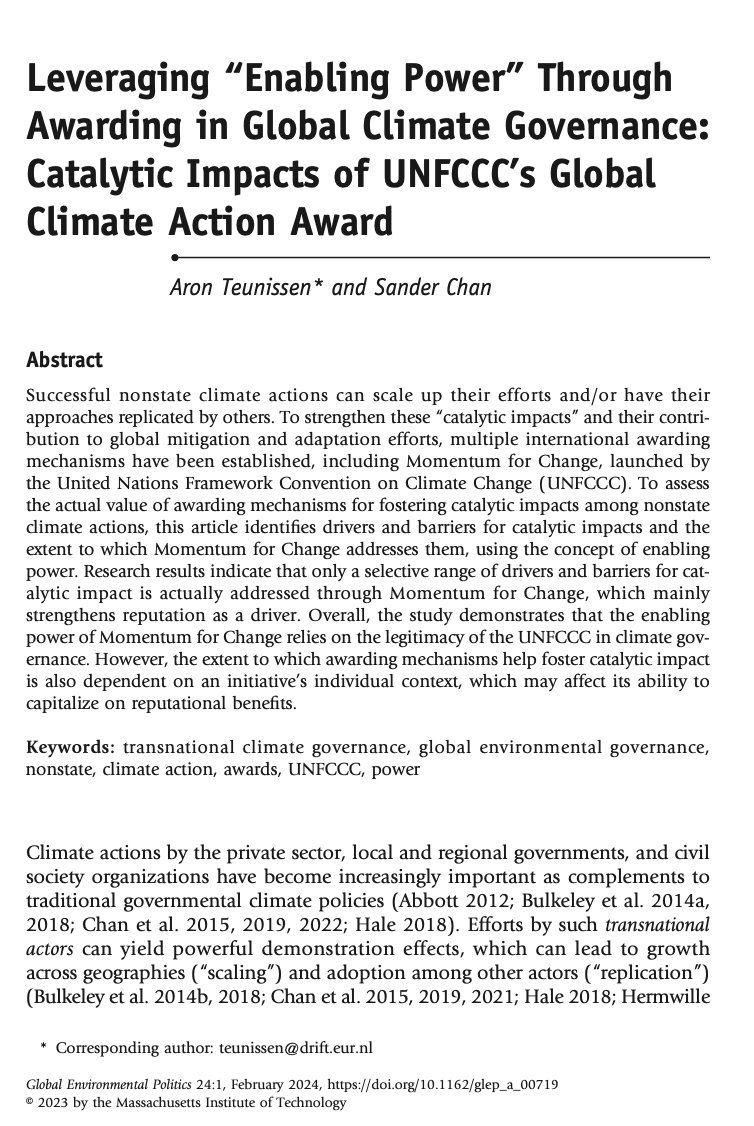Leveraging “Enabling Power”: Catalytic Impacts of UNFCCC’s Global Climate Action Award
- Sander Chan
- Feb 2, 2024
- 2 min read
Recent years have seen the emergence of awarding as an important climate governance mechanism. Examples include the Earth Shot Prize, the Mohammed VI Prize for the Climate and Sustainable Development, and UNFCCC's Global Climate Action Award. The underlying assumption of these schemes is that they will stimulate catalytic impacts, or the scaling and replication of innovative approaches and climate solutions. However, does receiving a reward really help the growth and uptake of climate solutions? A new publication with Aron Teunissen (DRIFT, Erasmus University), based on his master thesis, delves into the impact of award-giving as a governance mechanism to scale and replicate voluntary and non-state climate initiatives.

UNFCCC, 2020
This study finds that award-giving can leverage 'enabling power' to help non-state actors to overcome some barriers to scaling and replication of new approaches. However, despite their recognised excellence, many award winning initiatives resource continue to experience constraints in growing their initiatives and/or the uptake of their innovative approaches, particularly due to unsupportive local policy contexts and resource constraints.
Yet, awarding as a governance mechanism effectively boosts visibility of climate initiatives. Such exposure can be translated into successful scaling and replication of climate solutions. However, the presence and magnitude of such catalytic impacts are heavily contingent on local contexts and types of initiatives. Awarding seems to be particularly valuable for the scaling and replication of more established initiatives, yet generate insufficient support for newer, smaller initiatives.
Despite its growing use, awarding as a governance mechanism is not effective at supporting all types of climate action. When designing awarding schemes careful consideration should be given to aligning the objective of growing climate action to the types of targeted initiatives. Moreover, while awarding mechanisms can serve as a catalyst through improved exposure, they are relatively ineffective at helping climate initiatives to overcome structural barriers related to (local) policy environments.
Catalytic climate action cannot primarily rely on awarding mechanism. The scaling and replication of climate actions require supportive policy environments and sufficient awareness about their invaluable climate contributions.
To learn more, read our publication here. Also, feel free to reach out to us.



Comments